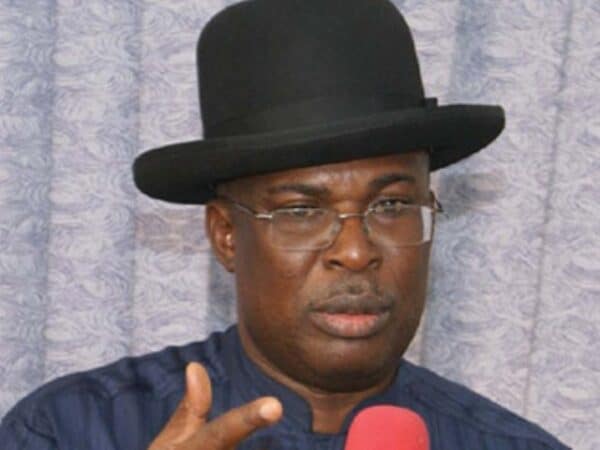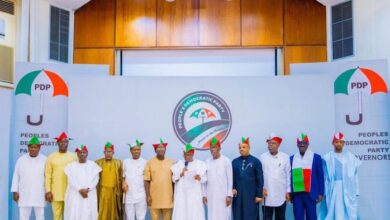Ijaw Youths Declare Petroleum Minister, Sylva, Buhari Non Grata in Niger Delta Over Over Controversial Petroleum Bill

Ijaw youths from the states in the Niger Delta region have announced that President Buhari and the Minister of State for Petroleum Resources, Timipre Sylva, are no longer welcome to the region over the passage and signing of the Petroleum Industry Bill into law, despite it largely been frowned upon by Nigerians.
While conceding that the duo of Buhari and Sylva have the constitutional rights to move to any parts of the country, the youths insisted that “their movement into the six states of the Niger Delta will be welcome with boos and disgraceful jeers due to their show of disregard to the plights and cry of the people of the region over the years”.
Recall that the Ijaw Youths, under the aegis of the Ijaw Youths Council Worldwide, had on Tuesday rejected the signing of the controversial Petroleum Industry Bill by the President, arguing that signing of the PIB into law was tantamount to “a total affront to the outcry of the people of the Niger Delta region against the 3 per cent provision for the oil producing communities”.
The Ijaw Youths Council, in a statement signed by the National Publicity Secretary, Ebilade Ekerefe, said the decision not to welcome Buhari and Sylva to the region was “a further show of disdain to their drop in the ratings of the Niger Delta people and should not expect any accolades and congratulatory messages from the region”.
“With the amount of speed the President used in signing the PIB without recourse to the stem stand by stakeholders from the region, the President has further demonstrated that the opinions of the Niger Delta people don’t matter in his government as we’ve witnessed in other areas that require urgent attention of his government,” the Ijaw youths stated.
According to the statement, the best course of action to have been taken by the President was to send the Bill back to the National Assembly for upward review of the 3 per cent equity share to host communities whose environments had suffered decades of oil exploration activities by the oil companies.
“Therefore, a substantial percentage to the Hostcom would’ve helped to address this age-long criminality. Until that is done, there’s nothing to celebrate,” the statement added.
The statement further described as an afterthought an explanation offered by Sylva on the 3%, saying that what the minister should have done, as a son of the soil, was to apologise and appeal to the conscience of our people, rather than justify an act which is politically tailored to favour the North and its allies in the industry.



